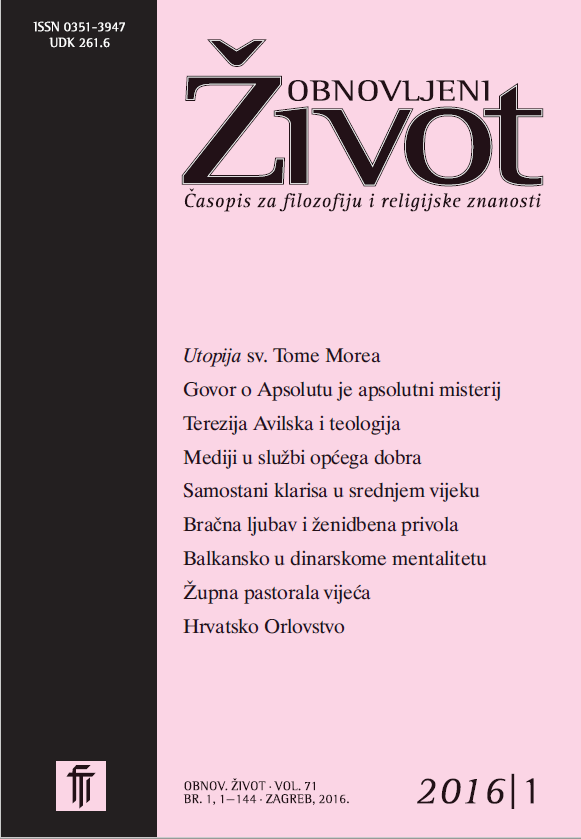Saint Teresa’s Rightful Place in Fundamental Theology
Keywords:
Teresa of Avila, fundamental theology, experience, theological method, prayerAbstract
In this the year 2015 we celebrate the 500th anniversary of the birth of St. Teresa of Avila (1515-1582). Seeing as she was the first woman upon whom the title of Doctor of the Church was conferred, her sanctity therewith affirmed, and the eminent teachings contained in her works substantiated, even theology itself is in a way impelled to direct its attention toward her. Therefore this great jubilee is an excellent opportunity to present this saint from Avila herewith to the Croatian theological community in which Teresa is just barely present. It is our intention to present the theological relevance of Teresa’s thought in such a way that a place may be alloted to Teresa herself in the world of theology, to be specific, in fundamental theology. The first section explains the importance of experience as the cognitive–affective process which generated Teresa’s works. Within this process is concealed a true theological method which the author proposes to fundamental theology since it is the theological discipline which is held most accountable for determining method in theology. The second section proffers a systematic cross-section of theological content that was lived out and thought out in the course of mystical experience. We are speaking here of the happy union between fides quae creditur and fides qua creditur whereby revealed truths are centermost to the Christian existence without being reduced to individual experience. Finally, with reference to Teresa’s thought, we point out the importance of prayer for our theological reflection, but also the fact that work in the field of theology can become prayer.
Downloads
Published
Issue
Section
License
Jednom prihvaćeni članak obvezuje autora da ga ne smije objaviti drugdje bez dozvole uredništva, a i tada samo uz bilješku da je objavljen prvi put u Obnovljenom životu. Uredništvo će obavijestiti autora o prihvaćanju ili neprihvaćanju članka za objavljivanje.
Članci objavljeni u časopisu se, uz prikladno navođenje izvora, smiju besplatno koristiti u obrazovne i druge nekomercijalne svrhe.


